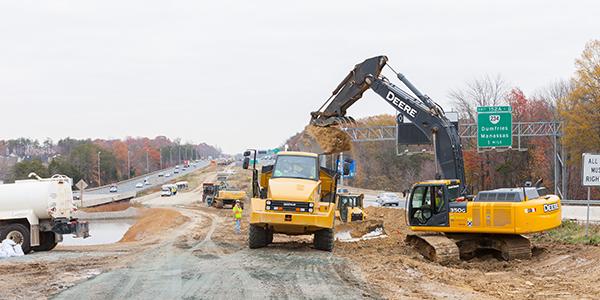Tolling Points
Senate Committee to Vote Tomorrow on Highway Reauthorization Bill

Capitol Hill is gearing up for a momentous week on surface transportation, with the Senate Environment and Public Works (EPW) Committee planning a vote tomorrow on the bipartisan Reauthorization bill it released this past Saturday.
In the House, the Transportation & Infrastructure Committee plans on extending its original self-imposed deadline of Memorial Day to complete its bill, with legislators and staff still sorting through the 2,380 earmark requests attached to the primary legislation and leadership seeking alignment with the President's American Jobs Plan.
On a separate infrastructure package, the White House and Congress are still in negotiations on President Biden’s American Jobs Plan, with proposed allocations of $115 billion to repair bridges, highways and roads, $20 billion for road safety and $85 billion to modernize transit systems.
While the President's American Jobs Plan is capturing a large share of the news coverage, the vote in the Senate EPW Committee on the Surface Transportation Reauthorization bill is big news. The Senate EPW's bipartisan bill is the cornerstone upon which everything else -- from current highway programs, to the Administration's infrastructure proposal is built. And the clock is running, with the current authorization set to expire September 30 unless Congress takes action.
Same as the last plan, with a bit more
The Senate EPW bill is broadly similar to the previous bill drafted and adopted by the same committee two years ago. The Surface Transportation Reauthorization Act of 2021 sets the funding level at $303.5 billion for USDOT programs including highways, roads and bridges. This marks an increase of more than 34 percent from the 2015 FAST Act. The new bill also marks a six percent increase above the Senate EPW Committee's previous bill, adding new programs to reconnect communities that were divided by past highway projects, and to measure and reduce carbon pollution from vehicles.
“Like the previous bill it includes new resiliency programs and eligibilities, establishes a new bridge investment program and focuses attention on the safety of vulnerable road users,” Politico reports. “It also funds alternative fueling and EV charging infrastructure, though at a much higher price tag than they were willing to contemplate two years ago—$2.5 billion, not $1 billion.”
“I’m proud to join with my colleagues in crafting a bipartisan bill that invests in our nation’s transportation infrastructure at a historic high level, and in doing so, helps create jobs, curbs our carbon emissions and expands opportunities for the American people,” said Senate EPW Chair Thomas Carper (D-DE). He called the reauthorization “a vital foundation for President Biden’s American Jobs Plan.”
“I have expressed my desire to work together across the aisle to develop a bipartisan solution to address our nation’s infrastructure challenges,” said Ranking Member Shelley Moore-Capito (R-WV), who’s also a lead Republican negotiator on the larger American Jobs Plan. “Not only will this comprehensive, bipartisan legislation help us rebuild and repair America’s surface transportation system, but it will also help us build new transportation infrastructure. These critical investments will help to provide economic opportunities now and for future generations.”
While the House T&I Committee makes its way through proposed earmarks submitted by 318 Members of Congress, its leadership is also grappling with how to pay for new surface transportation measures. “At this point, it’s not at all clear to me what will be the funding source,” House T&I Chair Peter DeFazio (D-OR) said last month. “I don’t know how it’s going to be funded. But we have to do this.”
Where to find the funds
Less than a week after DeFazio’s comment, IBTTA stepped up with the answer, with a Statement for the Record to Senate EPW that recommended three priority items for the reauthorization bill:
- A national road-use charging (RUC) pilot project;
- Continuing the user-pays principle for highway funding and finance; and
- Giving states the ability to use tolling to rebuild interstate highways, as a complement to the federal program.
The statement pointed to the decline of the fuel tax as a sustainable source of highway funding and called for “decisive action to begin a national road-use charging pilot program based on distance traveled on all roads.” It urged federal program planners to draw lessons from regional RUC pilot projects and create a multidisciplinary governance board to keep the work on track.
“Engaging a wide range of participants in the development of a national RUC pilot will help nurture public acceptance of this new highway funding mechanism,” IBTTA wrote. “By offering choices in how to engage and pay for future transportation charges, individuals can select alternatives that match their risk tolerance, technology adoption comfort and privacy preferences.”




0 Comments